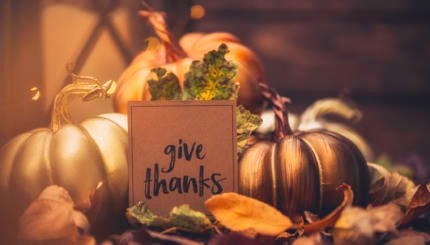Alan Jay Sufrin and Miriam Brosseau form Stereo Sinai, a self-described “biblegum pop” band based in Chicago, IL. This week, however, they’re taking it below the Mason-Dixon to report live on the Jewish happenings at South by Southwest, the nation’s largest music festival in Austin, Texas. In the first entry, they chronicled a Mirah concert, meeting the Sway Machinery, and shmoozing at the Heeb showcase.
Here’s the second of three locational reports — okay, and gossip — straight from the country’s biggest collection of concerts.
We knew we were going to be spending Shabbat at SXSW, but, as with the rest of the festival, you never really know until you get there.
Friday afternoon we found ourselves at a mini Shemspeed showcase watching Diwon, Kosha Dillz, Eprhyme and Y-Love lay down rhymes at a show supporting a charity called “Music Heals.†The performances were strong, but there was practically no crowd to support them.
The closest Chabad House — our default setting for a on the road — was surprisingly closed for spring break. So we tried Plan B. We marched off to Whole Foods and stocked up on goodies to munch throughout the next day as well as wine and challah (read: pomegranate juice and hamburger rolls) to make kiddush and motzi. We wanted to welcome Shabbat in a familiar way, but also wanted to avoid exhibitionism. The two of us prayed quickly in a relatively secluded corner of the Austin Convention Center, the hub of SXSW, just after the sun set over Sixth Street.
Hearing live music on Shabbat at all is crossing into dangerous halakhic territory — perhaps even more so when the groups you see (intentionally, at that) are an Iranian death-metal band and a Palestinian rapper.
We walked into the venue and found seats along the wall, making no show of our respective kippah and massive orange “Stereo Sinai: Biblegum Pop†sticker that might betray our religious identities. The crowd was an intriguing mix of aging hipsters, young mohawked punk-rockers, and a few more outwardly religious Muslims strewn throughout.
TarantisT,†began the tall nerdy announcer, his shaggy blonde hair hanging down from under a wide-brimmed 80’s hat. The story was pretty compelling. TarantisT had tried for three years to perform at SXSW, each time being denied a visa or having to go through some other bureaucratic loophole to evade the morality police in Iran. Finally, the announcer explained, one of them came to the States a full 363 days early for the festival, reformed the band with a few other Iranians, and finally got to play the big show.
The crowd responded with appropriate appreciation as the lead singer stripped his shirt off and demanded “More bass! More bass! More bass!†in time with the beat of the sound-check, a chant that was eagerly adopted by the rest of the audience. The set was rocky at first, but once the trio got its bearings, there was nothing like it. Death metal became liberation rock and it streamed in all its unshackled glory from every speaker. Mosh pits ensued, as is customary.
After the roars of approval died down, the announcer stepped back up.
“If you think doing death metal in Iran is tough, we’re about to take it up about three notches.â€
A couple young men in printed tees and keffiyahs stepped on stage amidst a motley backing band. The announcer himself picked up the guitar, a pot-bellied middle-aged man was behind keys, and a muscled African-American drummer sat behind the set.
Mohammed, the only Palestinian rapper who could make it from Gaza to Austin, picked up the mic and spit in Arabic to the dark, thumping Middle Eastern beats behind him. Really, you haven’t heard rap until you’ve heard it in Arabic. We picked out a few words here and there, but it didn’t matter. The songs were clearly filled with frustration and anger and calls for freedom. The Palestinian Rapperz Myspace profile shows a background shot of the group standing in a massive pile of rubble. The message was pretty clear.
One of the most interesting elements of the show was when Mohammed called up the self-proclaimed “hijabi hip-hop†artists — a pair of Muslim women from London who rapped in English while clad in full modest regalia. They’d named their genre, and so they owned it- and it showed.
At the end of the evening the announcer grabbed the mic one last time.
“This is something you’ll never again see at SXSW,†he declared. “A Palestinian rapper from Gaza playing with two Russian Jews and a drummer from Africa.†Whoa, really? Someone on stage had just openly and eagerly proclaimed his Jewishness, and after feeling so ill at ease about being at this show on a Friday night, suddenly we felt our presence being validated. It was like being counted for the ma’ariv minyan.

